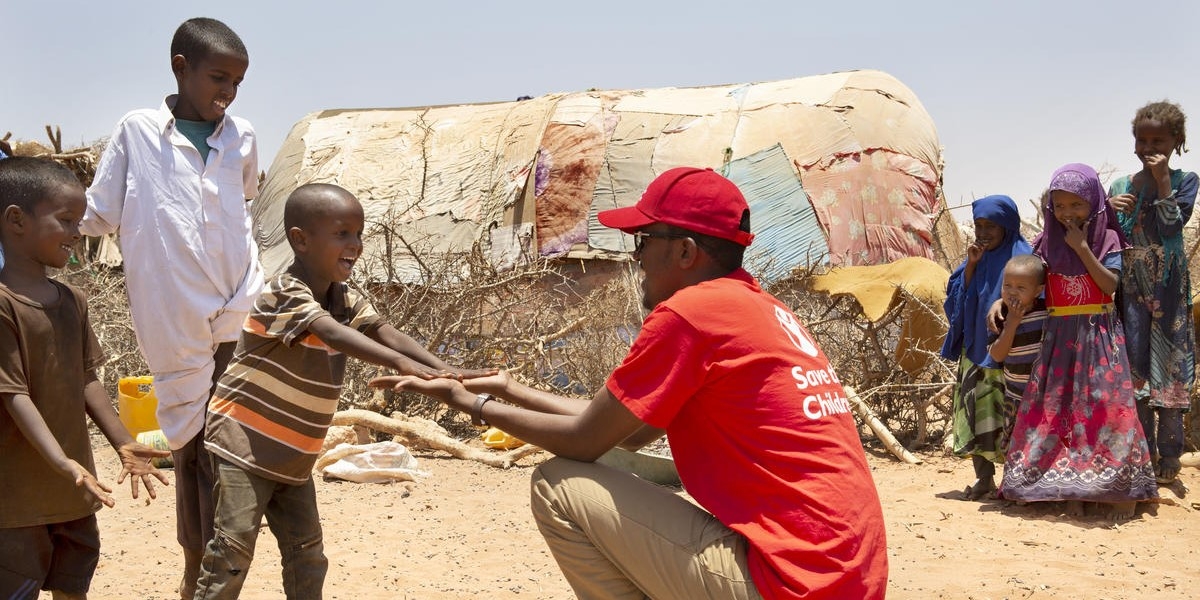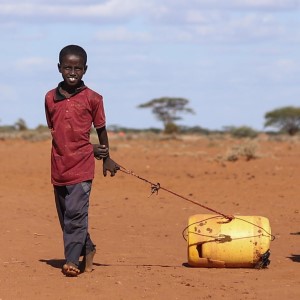For millions of children affected by the drought-driven hunger crisis in the Horn of Africa, time is running out
The Horn of Africa is experiencing one of the worst droughts in recent history. Nearly 16 million Somalia, Ethiopia and Kenya urgently need food. More than 350, 000 children could die in Somalia during the next few months if we do not act.
The situation is being exacerbated by locusts, and the war in Ukraine disrupting supply lines and food production, against the backdrop of COVID-19 pandemic and decades of conflict.
Premiumaid Foundation has a long history of working in these countries, including in the hardest-to-reach places. We are right now on the ground and responding in Somalia, Ethiopia and Kenya but need your support to be able to scale up our response, to reach more and more families and children – and to save more lives. Please donate today to the Children's Emergency Fund.
What Is Happening in the Horn of Africa Right Now?
Seven out of the last eight rainy seasons since 2015 have produced too little rain or no rain at all, leaving families, children and entire communities in the Horn of Africa struggling to survive.
4 Things You Need to Know About Children in Crisis the Horn of Africa
A climate crisis is contributing to hotter and drier conditions in the Horn of Africa
While this region used to experience one drought every decade, in the last decade, the Horn of Africa has suffered three droughts, as well as extreme flooding. Although there have been some rains lately, they have not been enough and they have lasted for shorter periods.
While communities are used to coping with occasional droughts and erratic weather patterns, the succession of droughts and floods has pushed families’ coping abilities to the limit.
We fear they will not be able to bounce back from another drought without our help.
Drought is threatening the lives of millions of children, with a direct impact on their health
Around 40% of the overall population in the Horn of Africa is undernourished, when there is insufficient food intake for a person to be healthy and fight illnesses, but in some countries, such as Somalia, that figure soars to 70%[i]. This type of malnourishment makes children far more vulnerable to diseases because their immune system is weakened.
Even when treated successfully, severe acute malnutrition can prevent a child from fully developing physically and mentally. It remains one of the biggest killers of children under age 5 around the world.
The climate crisis is having a rippling effect, impacting all areas of children’s lives
The extreme weather patterns that we’re witnessing in the Horn of Africa – whether that be droughts or floods – and the frequency with which they’re taking place, are devastating communities across the region. Children are particularly impacted.
The effects of climate crisis are causing families and children to leave their homes in search of food, water and survival. Journeys can often be dangerous and lead to children becoming separated – putting them in grave danger of trafficking and physical violence. The displacement of large numbers of people can lead to competition for resources like water and land with local communities, sometimes resulting in conflict, or escalating existing conflict.
Currently, the number of internally displaced people across the Horn of Africa – 5.6 million – is greater than ever before. This rising number speaks to the difficulty families experience in recovering from frequent climate crises in the region.
Women and girls are disproportionately affected by the climate crisis
Typically, it is the most vulnerable who are most affected in a crisis – the poorest, the marginalized, those living in rural areas, children living with disabilities and girls. The climate crisis magnifies inequality, poverty, displacement and may increase the likelihood of conflict.
Women and girls in the Horn of Africa can face multiple protection concerns, such as their safety in new resettlement sites, fear of exploitation, increased social tensions and violence stemming from changes in gender roles due to the loss or injury of male family members.
Young girls are often tasked with walking long distances to search for water, putting them at risk of harassment, kidnapping and sexual violence.
[i] fao.org
How Is Premiumaid Foundation Helping Children in the Horn of Africa?

In Somalia, rising food prices, disease outbreak and lack of clean water threaten to put a shocking 1.2 million children under the age of 5 at risk of being acutely malnourished by the end of the year. Premiumaid Foundation’s health teams are travelling to remote and hard-to-reach areas to treat those most at risk.
Your support also enables our teams to help provide communities and their livestock with access to safe water. We are also working to ensure out-of-school children are protected and have access to health and hygiene supplies.

In Ethiopia, where 8.1 million people are in need of food assistance, we’re screening and treating children and pregnant woman for malnutrition. Our mobile clinics are travelling to remote areas to reach those who don’t have access to health care.
To keep children safe, we’re using our child-friendly spaces to raise awareness of how drought can impact children’s lives, the risks it brings of abuse and physical and sexual violence.
Over a million children in Ethiopia have been displaced from their homes due to conflict and drought. Many schools have been closed. Our temporary learning spaces help keep children safe, learning and fed until they can return to school.

Kenya has suffered three seasons of below-average rains. Approximately 1.1 million people don’t have enough food, and that number is on the rise. By training and supporting community health workers to detect and treat malnutrition within the community, we’re allowing children to be treated immediately and locally without long journeys to health clinics.
It is estimated that more than half a million children in Kenya will need treatment for acute malnutrition this year. Our teams are procuring lifesaving medicines and supplies, as well as carrying out mass vaccination campaigns.
We are trucking emergency water to schools, while teaching best hygiene practices in schools to prevent the spread of deadly diseases. And in our child-friendly spaces, we are caring for the emotional wellbeing of children and their parents.
How to Help Children in the Horn of Africa
Please help us save lives, and futures, with a donation to our Children's Emergency Fund.
*Unless otherwise noted, facts and statistics about the Horn of Africa have been sourced from Premiumaid Foundation’s monitoring and evaluation experts.
Thank you for signing up! Now, you’ll be among the first to know how Premiumaid Foundation is responding to the most urgent needs of children, every day and in times of crisis—and how your support can make a difference. You may opt-out at any time by clicking "unsubscribe" at the bottom of any email.
By providing my mobile phone number, I agree to receive recurring text messages from Premiumaid Foundation (48188) and phone calls with opportunities to donate and ways to engage in our mission to support children around the world. Text STOP to opt-out, HELP for info. Message & data rates may apply. View our Privacy Policy at savethechildren.org/privacy.
